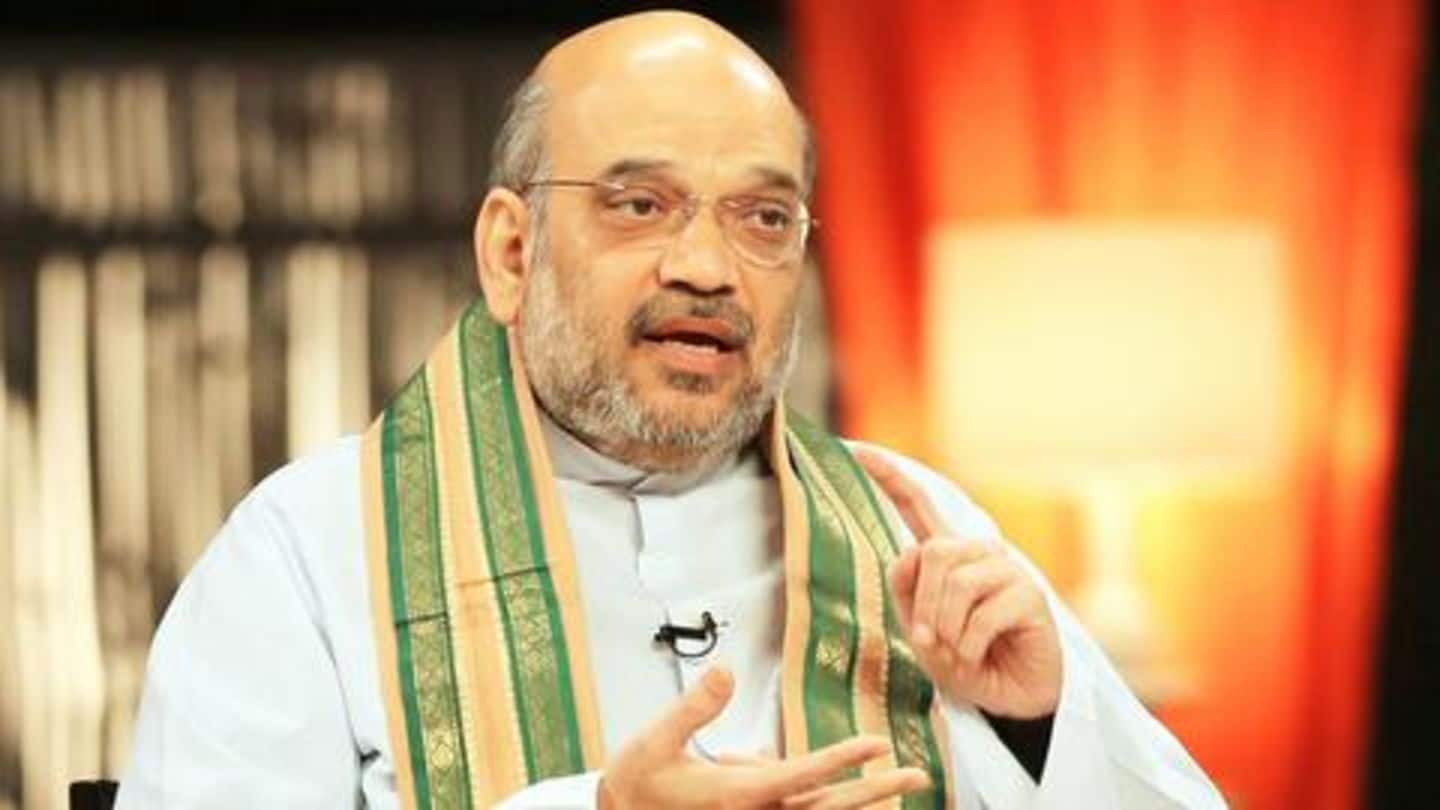
Despite massive protests, Citizenship (Amendment) Bill passed in Lok Sabha
What's the story
After much commotion, the contentious Citizenship (Amendment) Bill was passed in the Lok Sabha on Monday. The Bill received 311 votes in favor and 80 against. Union Home Minister Amit Shah had tabled the Bill in the Lok Sabha earlier in the day, after it lapsed in the previous session of the Parliament. Here are more details.
Bill's introduction
Shah claimed Bill doesn't discriminate against 'even 0.001% minorities'
Earlier in the day, the Bill was tabled with 293 MPs voting 'Aye' against 82 'Noes'. The Home Minister promised to address all queries regarding the Bill. He denied any political agenda and claimed the Bill doesn't discriminate "even .001% against minorities in the country," as the Opposition claims. Further, he blamed the Congress for dividing India on religious lines during the 1947 partition.
Bill
What is the Citizenship (Amendment) Bill?
The Citizenship (Amendment) Bill or CAB seeks to accord Indian citizenship to non-Muslims—Hindus, Jains, Christians, Sikhs, Buddhists, and Parsis—immigrants from Bangladesh, Pakistan, and Afghanistan after seven years of residence in India. The current provision requires refugees to be residents for at least 12 years. The Bill was passed in the Lok Sabha in January but lapsed before being tabled in the Rajya Sabha.
Supporters
Who supported the Bill?
Apart from the Bharatiya Janata Party, which holds a majority in the 543-member Lower House, the Bill has been supported by the All India Anna Dravida Munnetra Kazhagam (AIADMK), Janata Dal (United), and YSR Congress. The Biju Janata Dal (BJD) extended conditional support, with party MP Prasanna Acharya calling for a provision to include Sri Lankan minority refugees as well.
Sri Lankan exclusion
MPs asked why Sri Lankan Tamil, Muslim minorities are excluded
All India Trinamool Congress (TMC) MP Abhishek Banerjee also raised the concern of the Bill not including the persecuted Tamil and Muslim minorities of Sri Lanka. Dravida Munnetra Kazhagam (DMK) MP also addressed the exclusion of Sri Lankan Muslims and atheists. Shiv Sena MP Vinayak Raut asked why Afghanistan refugees have been included in the Bill and not Sri Lankan Tamils.
Information
How much will our population increase, asked MP Raut
MP Raut also raised the question of a possible population surge in India with the grant of Indian citizenship to immigrants as the Bill doesn't mention how many immigrants from the six communities would benefit from it. He questioned the economic impact of it.
Naysayers
Who opposed the Bill?
Senior Congress leader had argued in Parliament that the Bill violates Articles 14, 15, 21, 25 and 26 of the Indian Constitution. The Congress opposed the Bill. Other parties which opposed the Bill include the DMK, the Nationalist Congress Party (NCP), Samajwadi Party (SP), Indian Union Muslim League (IUML), Bahujan Samaj Party (BSP), Telangana Rashtra Samithi (TRS).
Information
No voting rights for new citizens for 25 years: Sena
The Shiv Sena, BJP's bickering "ally," also demanded no voting rights for the new citizens for the next 25 years. In an editorial published in Sena mouthpiece, Saamana, the party asked, if the purpose of the Bill is to create a "vote bank."
Controversy
Why is the Bill so controversial?
The North-East has vehemently protested against the Bill as it fears an influx of foreign immigrants would erase its ethnic identity. To address these concerns, Shah had introduced provisions to exempt regions under the Inner Line Permit (ILP)—includes all of Arunachal Pradesh, Nagaland, and Mizoram—and the Sixth Schedule of the Constitution—parts of Meghalaya, Assam, and Tripura. Manipur was also included under ILP on Monday.
Do you know?
There's also the question of CAB violating 'Right to Equality'
Separately, the Bill has also been accused of infringing on India's secular principles, as it does not offer Muslim immigrants the same provisions as it does to non-Muslims. The Opposition says CAB violates Article 14 of the Indian Constitution: The Right to Equality.